Photographs: Amit Gupta/Reuters
Dr Ramachandra Guha is much more than just a historian and biographer. An Indo-American Community Visiting Professor at the University of California at Berkeley, his books include a pioneering environmental history, The Unquiet Woods, and an award-winning social history of cricket, A Corner of a Foreign Field.
Dr Guha, 49, is also the author of India After Gandhi: The History of the World's Largest Democracy, published by a division of HarperCollins.
For long, he was respected among the intelligentsia for being a historian. But his frequent television appearances that reflected his young attitude and clarity of developing history made him popular among the masses. His passions include the environmental movement in India, cricket and Indian history. With sheer eloquence and passion, Dr Guha took the analysis of cricket and cricketers to a higher pitch.
In Part-I of an exclusive interview to rediff.com's Sheela Bhatt, Dr Guha, in his own masterly ways, explains the making of Congress party, its historic journey and, deciphers the nuances of its core philosophy. Read Dr Guha's views to know what lies in future for the party and for India.
What kind of thoughts come to your mind as the Congress completes 125 years?
I would like to separate my views and prejudices about today's Congress, and, my sentiments as a citizen of India from the perspective of a historian. For the historian, the first thing to remember about the Congress is, of course, that it is the most important political party in the history of modern India. Globally, the Republicans in America and Conservatives of Britain and the Congress party of India are three of the most important, most durable and most influential political parties in the history of the world. The Labour party in Britain was born after the Congress in India. So, the Congress is the most important political party in the non-Western world. It had a profound impact on national liberal movements in Asia and Africa. It wasn't restricted to India. In fact, the African National Congress took its name from the Indian National Congress.
I would like to focus on the name 'Congress'. In Britain, the Conservative party stands for a particular philosophy, which is right wing. The Labour party is also exclusive and stands for Left wing policies and defines itself accordingly. The Congress, historically, has been inclusive.
...
'Most Indians today identify Congress with a single family'
Image: File photo shows delegates at the first session of the Congress in 1885What does the Congress means? The Indian National Congress means that anyone can join it. Mukul Kesavan (author and columnist) has a nice phrase. He said when the Congress started, it showed itself as the Noah's Ark of nationalism. It wanted to bring every species of Indian on to the board. So Hindus, Muslims, Christians, Parsees, men, women, low caste, high caste, north Indians, south Indians, Hindi-speaking, Gujarati speaking, Tamil-speaking, Left wing, Centrists and Right wing... -- anyone could join.
Congress had that all-encompassing character. It had an inclusive character, but at the same time it was elusive because you didn't really know what the Congress stood for. It was a capacious all-inclusive party. That's how it could draw large strands of society into the freedom struggle. Of course, some strands stayed out. A section of Dalits under BR Ambedkar stayed out, a section of Muslims under (Muhammad Ali) Jinnah stayed out, a section of south Indians under E V Ramasami (Tamil social reformer popularly known as Periyar) stayed out. But, the Congress's intention was always to be inclusive and that continues.
What makes it durable?
I think, several things. The time and work put in by the Congress. Unfortunately, most Indians living today are under the age of 40-45 and they identify Congress with a single family. But this family (Nehru-Gandhi family) has benefited by the work put in by the generation of party builders from the Gandhian period onwards. I would say even before the Gandhian period. People like Dadabhai Naoroji, Bal Gangadhar Tilak and Gopal Krishna Gokhale in Maharashtra, Bipin Chandra Pal in West Bengal, Lala Lajpat Rai in Punjab, G Subramania Iyer in Madras.
Gandhi's stroke of genius
Image: File photo show Nehru with GandhiFrom 1885 (when the Congress was formed) till 1925, it spread all over India but its spread was restricted to the English-speaking class. When Gandhi came, he transformed the elite middle class party into a mass-based party. He did it by using the mother tongue. It was Gandhi's great genius to say that we will operate in English only at the national level.
The Congress in Gujarati areas operated in Gujarati while in Kannada-speaking areas a Kannada Congress flourished. His second stroke of genius was to take it to the grassroots. Till 1920s, it was town-based. Maybe a lawyer in Surat or a doctor in Madurai would be in the Congress, but Gandhi took it to the peasants and to the districts and Talukas. His greatness lies in the fact that he nurtured a second rung of leadership.
He identified people in different provinces. He picked Dr Rajendra Prasad in Bihar, Patel in Gujarat, Rajagopalachari in Tamil Nadu, Jawaharlal Nehru in Uttar Pradesh. He did not make Congress dependent on himself or just use it to project himself. Of course, Gandhi was the most important Congress leader. But under Gandhi it was a truly democratic and decentralised party at the grassroots. After independence, leaders like K Kamaraj worked and built it further at the national level.
At the state level, Yashwantrao Balwantrao Chavan, Nijalingappa, Atulya Ghosh and others built the Congress and sustained its importance. The tradition of maintaining provincial units and incorporating different strands of India into it continued. In that sense, from 1920 to 1970, fifty years of organisation building continued. This is something no other party could do.
'Nehru and Patel were wise to disregard Gandhi's advice to disband Congress'
Image: File photo of Mahatma GandhiHow do you see the Congress from 1947 when Acharya JB Kriplani was party president to 1959 when Indira Gandhi succeeded UN Dhebar? There is a book by Permanent Black Publisher, which narrates the meeting in Sewagram attended by Vinoba Bhave and others debating the party's future after Gandhi's death in 1948. The book is the transcript of that particular meeting. How do you see the churning within Congress from that meeting till Indira Gandhi's emergence?
Gandhi was a political activist and a social reformer. So, the Congress had both an agitational wing and constructive work to do. When independence came, someone had to occupy both these parts. In one of his last speeches, Gandhi said that the Congress should disband. My personal view is that Nehru and Patel were wise to disregard his advice because there would have been a vacuum at the centre.
That was the time of crisis, communal conflict and communist insurgency. The centre had to hold. The princely states had to be integrated, refuges had to be resettled. I think, had the Congress been disbanded in 1948, India would have been divided in 10 or 20 parts.
Gandhi was wrong, I think. His view came out of despair. It came from the sense that Congressmen would take office to become power hungry. What should have been done is that constructive work should also have continued. Unfortunately, the constructive work side of the national movement disappeared in 1950s and 60s.
Till 1970s, there was no significant civil society activity within India. Ela Ramesh Bhatt (founder of the Self-Employed Women's Association of India) and others renewed it through the co-operative movement. That meeting in Sewagram was about what the constructive side of the Congress should do. But, in a democracy, you need political parties as well as civil society organisations. Both must be strong. Maybe, the Congress should have maintained both sides under different organisations.
'The slide came after 1969 when Indira broke the Congress'
Image: File photo shows Jawaharlal Nehru with Gandhi at a Congress national meetBut, don't you think the major downslide of the Congress began between 1947 and 50?
No, I don't think so. I think the party's downslide began in the late 1960s. In the 1940s and 50s, the Congress was strong. It had strong provincial units with autonomy. In 1950s and 60s, the party's Karnataka unit elected its own leader. States had autonomy. It functioned independently. The slide came after 1969 when Indira Gandhi broke the Congress. She made it a totally centralised party depending on her. The organisation was not important; only the charisma of the leader was important. After 30 years of over-centralisation, Congress has started to revive the organisation.
Nehru had certain ideas of socialist development. Do you think the party approved Nehru's ideas?
Yes, I think a large section approved of it. And, those who disagreed with Nehru's economic ideas left Congress to start their own party. Look at the major parties of 1950s and 60s. C Rajagopalachari, who started Swatantra Party, was an old Congressman. Jaiprakash Narayan and Acharya Kriplani, who were in the Socialist Party, were also Congressmen.
The middle class, intelligentsia and economists supported Nehru. He had support even outside his party. Those were different times. We thought, in the 1950s that Russia was doing very well. We did not know the problem with State planning and so on. After all, Russians put Sputnik in space before the Americans. So we thought the State is very important for economic growth and technological development. Nehru reflected that popular mood.
Were many Congressmen right wing, then?
No. Some Left-wing people left the party and joined the Socialist Party. But, on the balance, Congressmen were centrists. They accepted Nehru's economic ideas; people accepted them as well. After all, there were three elections that elected Nehru back to power.
'After Gandhi and Nehru, Congress owes Kamaraj a great deal'
Image: File photo shows Kamaraj (Centre) with Nehru and Indira GandhiSee, the difference in Nehruvian period and Congress after Nehru was evident. Nehru could decide the national policy, but many things have to be decided at the state levels. Bidhan Chandra Roy ran the West Bengal unit, Nijalingappa ran Karnataka and Kamaraj and his colleagues ran Tamil Nadu.
In terms of taking political decisions after Nehru, what we call the high command culture prevailed. Nehru's wish prevailed in economic decisions, but his decisions didn't prevail over what B C Roy wanted in West Bengal. After independence, I think Kamaraj was the important non-Gandhi and non-Nehru leader, who influenced the party.
After independence, Kamaraj's tenure was significant for two reasons. He brought backward classes into the Congress fold. See, even Gandhi was baniya (trader caste), Nehru was Brahmin and Patel was from the dominant caste. Rajendra Prasad was Kayastha, which was known as an intellectual caste. Till 1947, very few Dalit or backward class leaders were in leadership roles in the Congress. Kamaraj represented pleasant caste combinations. He never spoke English. Famously, he used to say pakkalam meaning 'let's see'.
Kamaraj should be credited for smooth transfer of power within the Congress -- from Nehru to Shastri and from Shastri to Indira Gandhi. In fact, Kamraj is an under-rated figure in our democratic history. He had to arrive at a consensus when Nehru died. Nehru was a colossus. How to find his successor? He found Shastri through consensus. Shastri laid the seeds of the Green Revolution. He was a very good war leader in 1965. Then, he suddenly died in Tashkent and again Kamaraj organised consensus and got Indira Gandhi on top.
I don't know how many Congressmen remember Kamaraj now, but after Gandhi and Nehru, Congress owes him a great deal.
'If Shastri lived 5 more years, Sonia would have been a housewife'
Image: File photo shows Lal Bahadur Shastri sharing a lighter moment with troopsIt is true that what is called 'high command culture' emerged in Congress due to Indira Gandhi, but some argue that without Nehru and Gandhi's leadership Congress would not have remained united.
Not at all! What about Shastri? Shastri's accidental death created this. If Shastri had lived another five years, Sonia Gandhi would have been a housewife and Rajiv Gandhi would have been alive. In 1965, Indira Gandhi was thinking of migrating to England! It is an accident of history that Shastri died, prematurely.
The so-called high command culture came in Congress also because it was trying to survive those changing times.
Look at history. Because of Indira Gandhi's authoritarian dictatorial ways you had new parties challenging the Congress. Many state leaders were averse to it. Because of this high command culture within Congress, you had the rise of Telugu Desam Party and Janata Party in Karnataka and Communists grew in West Bengal and Kerala, Asom Gana Parishad in Assam, Bahujan Samaj Party in UP and Dravida Munnetra Kazhagam in Tamil Nadu. So, Congress lost control in many states because of lack of party organisations at the state level. They depended solely on charisma of Indira or Rajiv. But, now they have recognised the problem. They are rebuilding the party at the state level.
Do you think after 125 years Congress runs the positive balance because of its belief in secularism?
It runs because of its inclusiveness. Unfortunately, we reduce inclusiveness to secularism. Inclusiveness is much more than secularism. Linguistic pluralism is part of inclusiveness. Because of Gandhi, Congress operated in different languages. Gender was very important to Congress. It was remarkable that they had Sarojini Naidu, Sucheta Kriplani, Kamladevi Chatopadhyay, etc Indira Gandhi and Sonia Gandhi are not the first women leaders of Congress.
People from all castes, south, east and north -- all are included in Congress. Inclusiveness is the greatest strength of Congress. Except for the aberration of emergency it is committed to electoral democracy. I have written in my book India after Gandhi how in 1947-48, Nehru and Patel kept the military out. They told the military this is your lakshman rekha (limit). Unlike Bangladesh or Pakistan or many countries of Africa, we were able to keep the military at a distance.
Also, India was able to keep Left extremists out. Congress has these plus points. But it should not be content with this; it should do better. In many ways, today's Congress is not living up to its best traditions. Indira Gandhi became all-powerful only in 1971. So, for 85 years, Indian National Congress was not dependent on one family. For two-third years of its existence, it was without high command culture. You can argue because of its two-third years of history, because of 80 years of work of thousands of selfless Congress workers one family has benefited! That family (Gandhi family) has to recognise this fact.
Watch this space for Part-II of Dr Guha's take on Sonia Gandhi and Rahul Gandhi

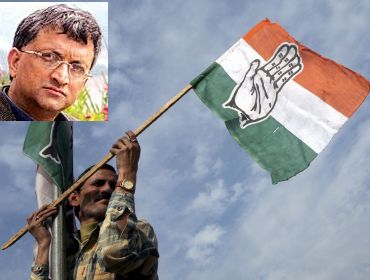
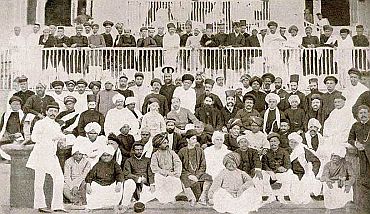
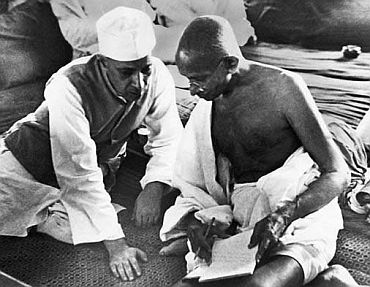
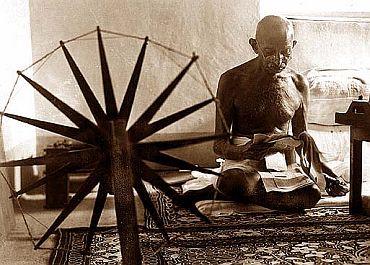
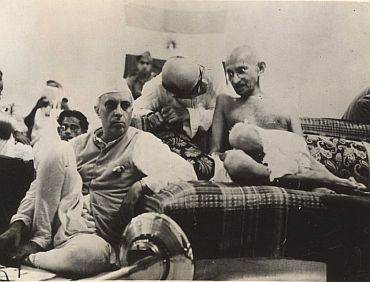
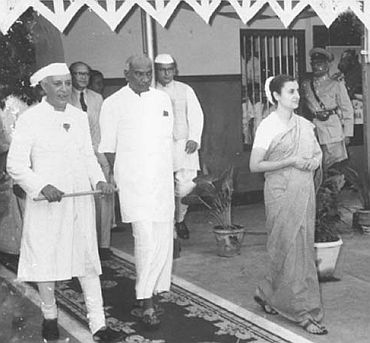
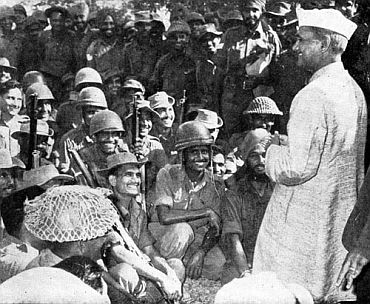
article